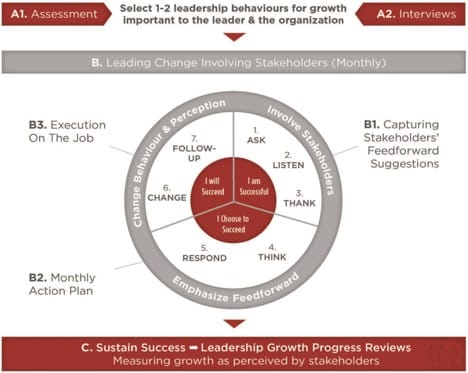2020

Why the heck is Behaviour Change so difficult when the process is so simple?
Posted by Perspect
A Behaviour Change Process That Works
Long-term sustainable behaviour change is very difficult. The good news is that we know a lot about the mechanisms underlying why sustained change is hard.
The process is simple; pick an area to change, set goals and success metrics, engage stakeholders, change – easy right?

The Roadblocks to Successful Behaviour Change
Here are a few of the primary reasons it is so difficult and recommended tactics:
We are emotional creatures:
One would think that the carrot and stick would work well here. Those feelings of shame, guilt, fear etc. should be enough to get anyone to change and in some instances, they are certainly a motivator, but studies show that in most instances fear and regret were the least effective change strategies. However, emotional connection to the desired outcome is critical for behavioural change – we just need to
find that positive, self-satisfying platform from which to launch the change.
In my experience as a leadership coach, the most effective platform for change is an emotional connection to the positive impact the change will have on someone we love, with children being the most influential in inspiring sustainable change.
If you are contemplating a behavioural change ask yourself; if I am able to make this change what will be the positive impact for my children, my spouse, employees, community, self etc.? Dig deep and take time to reflect and keep asking the same question until you strike that emotional chord that won’t allow you to turn back. The fact is if you are not connected to the outcome your chances of success are very low, you will simply quit and well, why wouldn’t you if you don’t care.
The success superstition:
I am very fortunate to work with very successful people. Interestingly enough these folks are very superstitious, maybe you can relate. It goes like this, “I have achieved my level of success by behaving in certain ways, if I change, I will fail.” Seems logical, also sounds like, “We have always done it this way, why change now?”

My friend and mentor, Dr. Marshall Goldsmith wrote a great book on this topic called, “What got you here, won’t get you there.” Do you know why successful people become even more successful? It is because they are wise enough to know that shifting certain mindsets and beliefs is essential to personal and professional growth. They demonstrate vulnerability and humility in this regard.
As you undertake behavioural change challenge yourself on your success superstitions. What way of “being” do you feel has been accountable for your success, but at the same time have heard from others that it is damaging your opportunity to go to the next level? Perhaps you are successful in spite of this trait.
We bite off more than we can chew:
Behaviour change is a big thing, no matter what the behaviour is. We have to start somewhere, though, and with particular, measurable actions. Big and vague has to give way to small and specific.
If there are multiple areas you are considering, I would encourage you to go back and prioritize. Revisit the exercise above – which growth opportunity are you most emotionally connected to – chances are this will be most aligned with the core values you want to exhibit and how you want to be perceived day in and day out.
Then you can home on the specifics of the behaviour change. We need specific goals, which behaviour change research suggests are essential to success because we need performance targets to measure ourselves against. But they should be realistic and specific. Ask yourself the following two questions – don’t embark on the change until you are bought into your responses:
- What does success look like in this change?
- How will I measure that success?
We go it alone:
We are independent successful people; it makes sense we embark on behavioural change in the same way. Unfortunately, independent approaches to tackling sustainable change are not lasting. And, as difficult as it is to change your behaviour, it is even more difficult to change others’ perception of your behaviour, once their perceptions are set.
Let’s face it, we don’t know what we don’t know, and this holds especially true for those behavioural blind spots. By enlisting stakeholders/peers that you trust and respect and empowering them to hold you accountable when they see you slip, you are exponentially enhancing your probability of success.
Beyond this, it enables the rapid identification of specific leadership behaviours that are most impactful for the leader. Not only do you improve, co-workers perceive this progress, thus building your leadership brand (executive presence) and status in the organization. Stakeholders and co-workers buy into your change efforts and become supporters, creating a positive environment conducive to change.
Let’s Chat
If you would like to learn more about how you can successfully navigate a sustainable behavioural change for yourself or your team feel free to contact us or book a time to chat. We’d be happy to share our advice and successes in this area.
